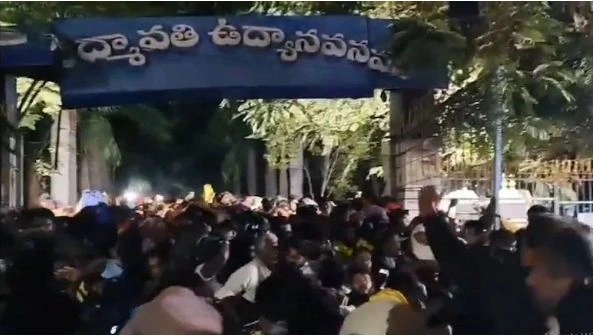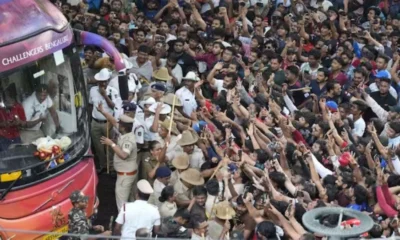India News
Tirupati stampede claims six lives, exposes gaps in crowd management during Vaikuntha Ekadasi preparations

India News
MK Stalin predicts frequent PM Modi visits to Tamil Nadu before assembly election
MK Stalin has said Prime Minister Narendra Modi will visit Tamil Nadu more often ahead of the Assembly election, calling the tours politically motivated and questioning the Centre’s support to the state.
India News
Shashi Tharoor questions Centre over Kerala name change to Keralam
Shashi Tharoor has criticised the Centre’s decision to approve renaming Kerala as Keralam, questioning its impact and pointing to the lack of major projects for the state.
India News
Tamil Nadu potboiler: Now, Sasikala to launch new party ahead of election
Sasikala has announced the launch of a new political party ahead of the Tamil Nadu Assembly elections, positioning herself against AIADMK chief Edappadi K Palaniswami.
-

 Latest world news14 hours ago
Latest world news14 hours agoTrump says tariffs will replace income tax, criticises Supreme Court setback in key address
-

 Latest world news14 hours ago
Latest world news14 hours agoTrump repeats claim of averting India-Pakistan nuclear war during Operation Sindoor
-

 Latest world news13 hours ago
Latest world news13 hours agoPM Modi to begin two-day Israel visit, defence and trade in focus
-

 India News14 hours ago
India News14 hours agoShashi Tharoor questions Centre over Kerala name change to Keralam
-

 India News5 hours ago
India News5 hours agoMK Stalin predicts frequent PM Modi visits to Tamil Nadu before assembly election
-

 Latest world news4 hours ago
Latest world news4 hours agoIndia eyes Rs 8,000 crore mid-air refuelling aircraft deal as PM Modi begins Israel visit





